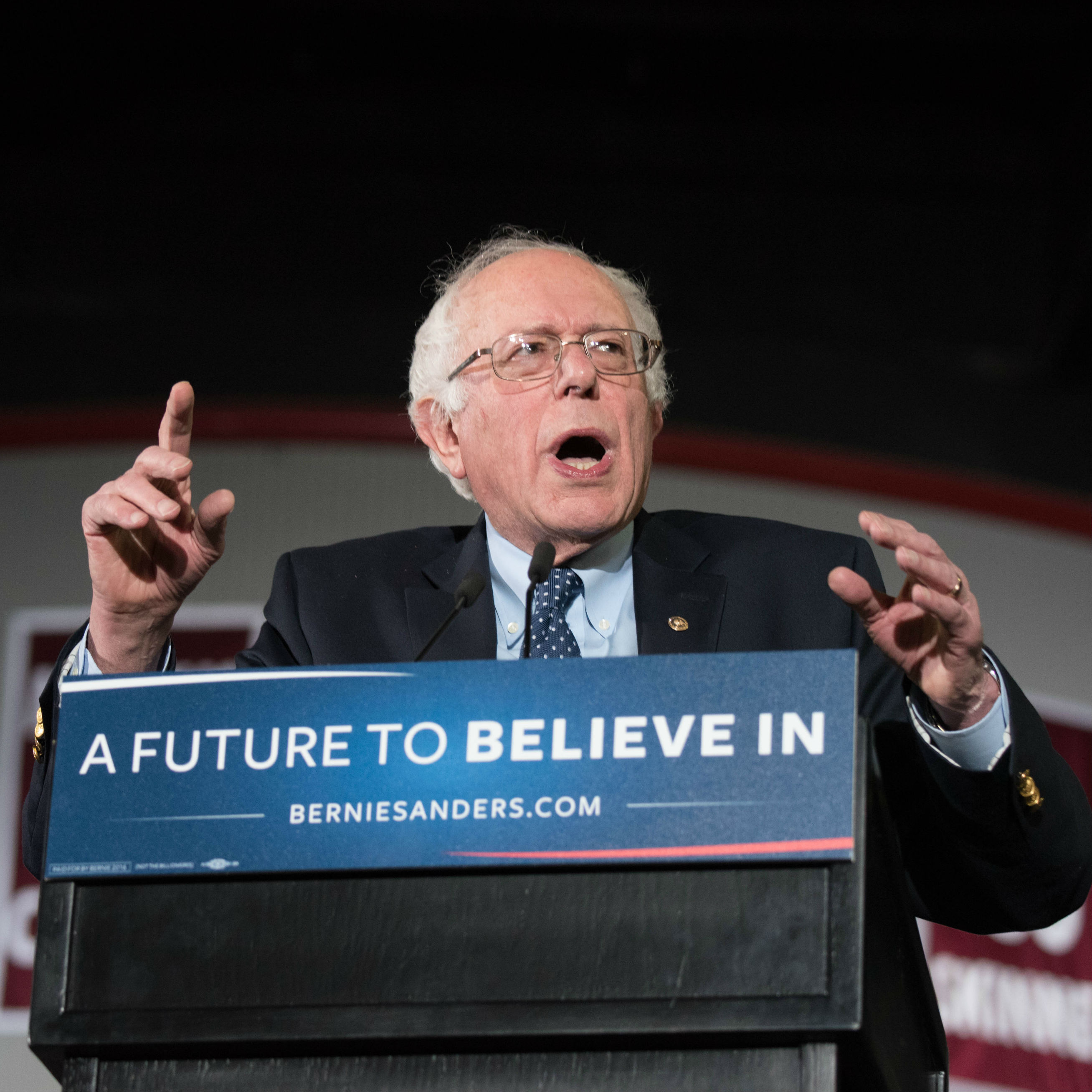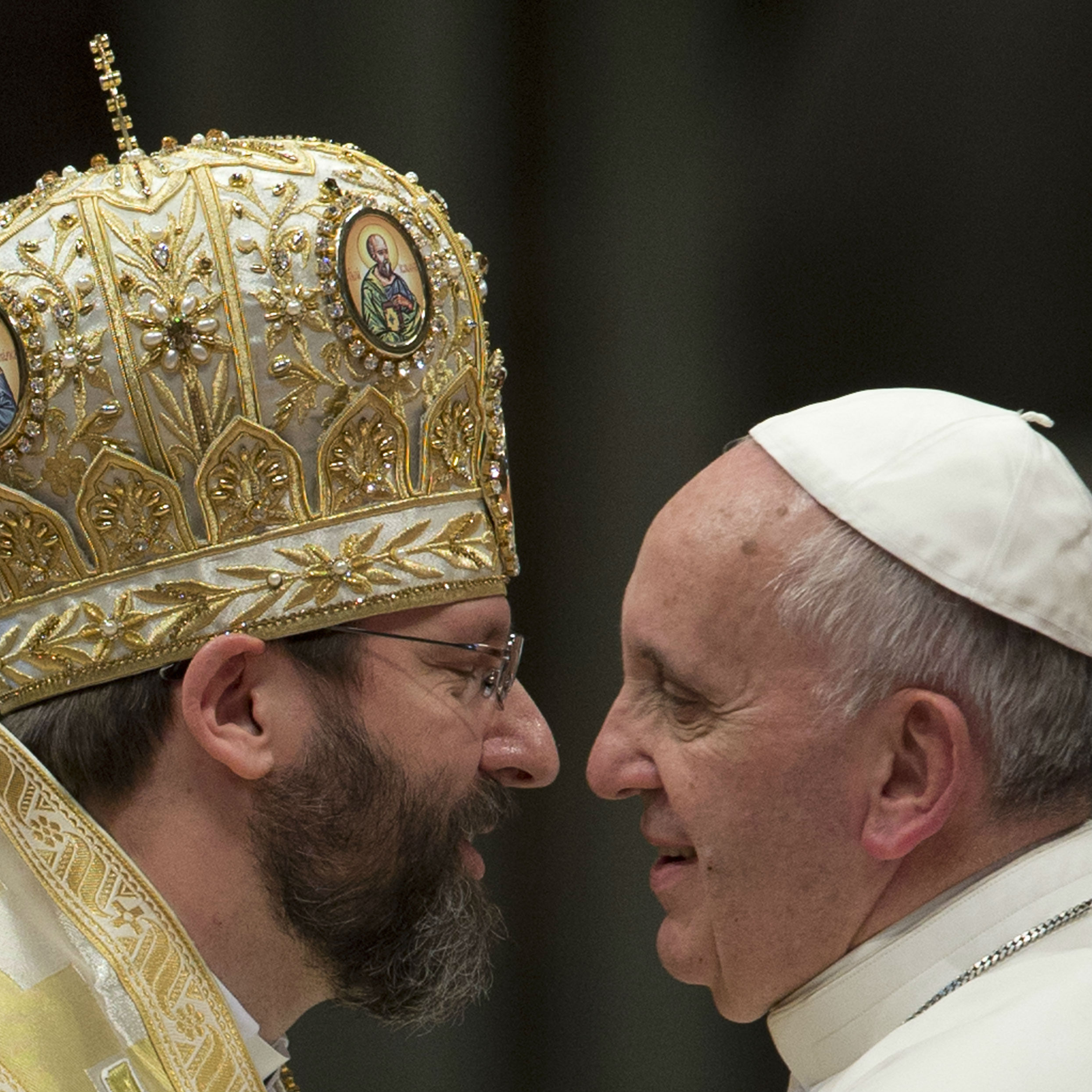The head of the Ukrainian Catholic Church said he was consoled by Pope Francis' words of understanding and tenderness after he expressed disappointment at the historic declaration signed by the Catholic and Russian Orthodox Church.
The Pope's remarks on the papal flight back from Mexico were "truly the opening of the doors of mercy," said Archbishop Sviatoslav Shevchuk of Kiev-Halych, head of the Ukrainian Catholic Church.
Pope Francis and Russian Orthodox Patriarch Kirill of Moscow signed a joint declaration in Cuba on 12 February. In an interview the next day, the archbishop said it contained unclear statements on the war in Eastern Ukraine and on the identity of the Ukrainian Catholic Church. He also said his people were deeply disappointed by the declaration's wording.
Responding on 17 February to a reporter’s questions about the archbishop’s critique, Pope Francis said everyone had a right to his or her own opinions about the declaration and the archbishop’s criticisms must be read in light of the experience of Ukrainian Catholics.
But Pope Francis also spoke about his friendship with Archbishop Shevchuk, which began when they were both ministering in Buenos Aires, Argentina. He recalled affectionately how the archbishop had given him an icon of Our Lady of Tenderness, which is one of the few things he asked to have brought to the Vatican after his election in 2013.
By mentioning their friendship and the icon, the archbishop said, “he is inviting us to lower our voices. You cannot have a dialogue shouting”.
The desire for mutual respect and closer cooperation among Catholics and Orthodox in Ukraine is not in question, Shevchuk said in an interview with the Catholic News Service, but what is lacking in the declaration is the depiction of the situation in Eastern Ukraine and the terminology used to describe the Ukrainian Catholic Church.
The problem with the declaration, he continued, is how it seems to hint that the war in Eastern Ukraine is a civil war and not one involving both Russian troops and Russian support.
In encouraging an end to tensions between Orthodox and Eastern-rite Catholics, the declaration referred to the churches that are in full union with Rome as “ecclesial communities,” a phrase usually used to designate communities the Catholic Church believes are lacking valid sacraments and apostolic succession. Yet, clearly, as part of the Catholic Church that does not apply to Ukrainian Catholics, the archbishop said.
Being part of the universal Catholic Church, he said, should preserve Ukrainian and other Eastern Catholics from excessive “provincialism, very narrow nationalism, and opens us to real, open ecumenical dialogue. Being Catholic today means being ecumenical.”
The declaration invited “all sides involved in the conflict to prudence, to social solidarity and to action aimed at constructing peace.” The Pope and patriarch also said, “We invite our churches in Ukraine to work toward social harmony, to refrain from taking part in the confrontation and to not support any further development of the conflict.”
"It is good to be united because of so many common challenges in today's world," Shevchuk responded, "but I think that real ecumenism is the search for unity in the name of one God, not one enemy".
The permanent synod of the Ukrainian Catholic Church is to meet in Rome beginning on 27 February and its members hope to have a meeting with Pope Francis, the archbishop said.




 Loading ...
Loading ...